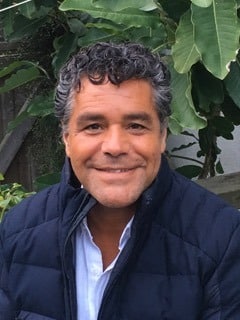Part 1: A wholistic Model

There are two models for Mental Health. Scientific materialism, which reduces a person and their mental health symptoms to only “separate physical parts.” The other is a wholistic system based on the knowledge of interdependent and interrelated relationships within the body’s organs, mind and body, mind and emotional states, and the body/ mind, and Soul interactions.
The Soul is non-physical consciousness, the sentient benevolent intelligence inherent in Being Alive. It is the source of inspiration for ideas, creativity, and imagination. The Soul’s vitality is the life force that organizes inner-resources for healing trauma, and the repair, and growth of cells.
Transforming the childhood personality
Two fundamental differences between Soul psychology and allopathic medicine, including psychiatry, is that we aim to transform the personality by establishing direct contact with the Soul. Our view is that awareness as the capacity to pay attention is independent of the brain processing information gathered by the physical senses. The wholistic model includes common sense and intuition as a means to collect data, except it is processed in a non-linear way.
The capacity to understand information non-linearly means knowing what is happening and what to do without thinking. This is a Soul property. Awareness exists independent of thought.
If you worry, you learned as a child to imagine what you don’t want…

Mental development goes through a series of stages that correspond to brain development. Children’s cognitive development goes through pre-rational magical thinking. Children absorb information literally –healthy and unhealthy. Children are positively and negatively impacted by what they feel, see, and hear. People who worry learned to imagine what they don’t want from somebody…
When a child doesn’t feel safe while interacting with one or both parents, they record it in their subconscious mind. When similar interactions happen, the brain groups them into patterns to avoid or to seek. Either way, because the pattern repeats the child adapts by generating habitual behaviors. For example, to withdraw, to please, or to control others. These automatic (unconscious) behaviors are stored as positive and negative self-images.
In transpersonal psychology, we use dis-identification from self-images as a primary tool to facilitate being present. Being aware of thoughts and feelings reveals them as the content of an experience, not as a definition of who you are
Here dis-identification means to see, feel, and listen to the inner child (the memorized image of you interacting with a parent) while remaining conscious of being the witness/observer. The counselor’s empathic skills track the changing states in the client and point them out, so the client learns to recognize their ego as an inner child.
We point out to the client that the healing taking place comes from the Soul to Soul interaction between us. A transpersonal counselor establishes an empathic bond that is intimate, respectful, and empowering, he/she can track what is happening in the client without having to analyze it
When the ego surrender its will to the soul.
Dissolving self-images allows authentic self-expression as an agency (producing a particular effect) and communion (bonding intimately). This process is challenging when there is trauma that generates resistance to allowing full sensory recall of what is suppressed and repressed. When trust with a counselor is established; the intention for healing is clear; commitment to transformation is strong, then the ego surrenders its will to the Soul. Then containing what is spontaneously arising is possible.
Effective transpersonal counseling teaches the client Self-awareness, self-care, self-love, and choosing core values that strengthen your character. It is essential to know that you are not your mind, that instead you have a mind, and that you can change your mind!
Your perception of yourself – your identity, determines how you behave. Changing your mind means deleting false beliefs – this transforms your character. In stressful situations, most people don’t know how to shift from ego survival instincts – avoid danger, pain, and disconnection, to Soul values: Love, respect, responsibility, accountability, honesty, dignity, integrity, etc.
Soul values
Soul psychology teaches you to become present authentically and overcome the habit of unconsciously, reacting like a stressed child. Through committed practice, Soul values replace negative habits such as worrying, doubting, blaming, complaining, judging, comparing, withdrawing, etc.
With practice, thinking your way through difficulties is replaced by embodying appropriate Soulful qualities of being that actualize knowing you are safe. This allows you to respond to stressful situations. For example, if you are afraid of conflicts and confrontations, you learn to mobilize your will and be courageous, resourceful, and pro-actively be capable to engage what your inner child fears.
Part two: Soul Psychology and Mental Health

Benefits of Soul psychology
Soul Psychology facilitates Soul individuation: becoming and expressing your unique potential. We educate individuals about autonomy, maturity, and authenticity by pointing and aligning with the inner authority of your Soul. This inner guidance replaces the negative self-talk of the fragmented ego. When you master paying attention and recognize yourself as the inner observer, Self-confidence, and self-care increase. A committed dedication to Self-Awareness practices makes you ever more Soulful with the benefit of ending insecurity and self-loathing.
Your Higher Self
Soul psychology engages the Soul as a Higher Self, which is you in an expanded dimension of awareness. The Higher Self positively influence your mind and body. According to this model, when the Soul’s inherent consciousness and lovingness are embodied, an individual’s sense of self – their identity, expands to become a personal presence.
Your personal presence is the actualization of your uniqueness and individuality, which is always connected to all existence. The awareness of being part of all life through a felt-empathic knowingness gives the Soul its capacity for conscience. Your Soul inherently knows what is healthy, benevolent, truthful, and appropriate. Transpersonal psychology utilizes intuition and common sense as vehicles to access and ground this knowledge.
The ego deals with stress using (unconscious) childhood experiences as a point of reference.
By focusing on developing and enhancing sense perception, transpersonal psychology goes beyond analytical, linear thinking for problem-solving and understanding complex situations and circumstances in real time. The ego deals with stress using (unconscious) childhood experiences as a point of reference. In other words, it makes irrational emotional decisions. Practical transpersonal work transforms unconsciousness into Self-awareness.
The ego identity is constructed by adding experiences from the past to the present. This creates your life story. A significant challenge for healing trauma is the survival instincts that automatically repress (force) and suppress (make unconscious – out of awareness) painful and traumatizing experiences. For example, many people don’t remember early childhood, do you?
The sense of something fundamentally wrong in you, or something essential lacking in who you are comes from Soul fragments buried in the unconscious mind. These aspects of you that were set apart contain life force stored as emotional energy in the form of hurt, fear/terror, and anger/rage/hatred. This forms the ego’ shadow.
Every Soul fragment in the shadow exists in an immature state, traumatized – stuck in a memory of experiencing extreme distress. This is the source of irrational fears that torment many adults
Healing and maturing
As an active agent of healing your Soul facilitates the integration of trauma repressed in the unconscious mind. When a fragment of the Soul gets imprison in shock, their life force feeds the self-destructive behavior of the ego’s shadow. The fact of existing in a separated and painful state is a constant source of anxiety for the ego.
The embodiment of the Soul’s boundless Love is directed at each Soul fragment- this is a method for healing through integration of past experiences. This loving bonding ends the perception of separation that feeds fear and insecurity. The assimilation of the recovered memories releases the emotional energy used to keep them unconscious. Vitality is now available to express the potential that couldn’t grow for lack of nurturing attention.
The shift
Integration transforms the fragile and insecure childhood ego into a flexible and robust aware-ego. This is a shift in identity from an immature and unconscious person to a mature and aware adult, someone capable of responding instead of reacting to stressful, dangerous, or painful circumstances.
Summary: Soul psychology acknowledges that humans are spiritual beings having a physical experience. Toxic cultural norms, including religion and education, along with childhood trauma, generate a personality conditioned for survival only.
This personality is conditioned with varying degrees of narcissistic tendencies that are acted out as selfish tyrannical control of others, and coward, passive-aggressive submissive behaviors.
By learning to have direct access to your Soul’s inner guidance, a person can make conscious choices that liberates them from the nagging feeling of unworthiness and the toxic belief that they are not lovable. Self-confidence, Self-love, humility, humor, kindness, generosity, and selfless contribution to life are evidence that you are living a soulful life.
www.becomeselfaware.com

Born in Costa Rica he has a Master’s degree in Chinese Medicine, and a Bachelor in Oriental medicine from Bastyr University, Seattle, WA, USA 1993. He did his Acupuncture internship at the Long Hua Hospital in Shang Hai, China 1992. He graduated from the Psychosynthesis institute of Puget Sound in WA, USA 1993. He has a Bachelor in Marine science from the University of South Carolina in Columbia SC, USA 1985. Osiris was trained in deep tissue massage and reflexology at the Atlanta school of massage in Atlanta GA, USA 1987. Osiris has been in private practice in wholistic care since 1987. He offers Counseling and Body work sessions, and teaches Personal development courses and retreats. The essence of his work is Soul education and embodiment. Osiris emphasizes Self Awareness as the vehicle to heal childhood trauma. His life’s work is focused on the integration of Body mind and Soul.

